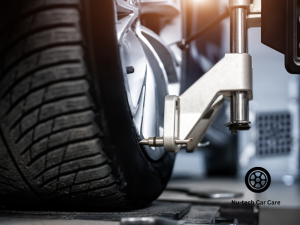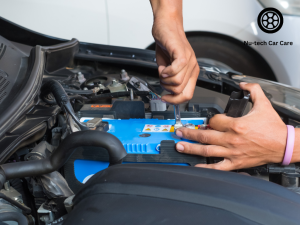In the vast world of automobile care, the significance of finding a trustworthy car mechanic cannot be overstated. Every car owner desires smooth journeys without unexpected hitches. The foundation for such reliable experiences is often laid by your chosen mechanic. However, mistakes in this choice can lead to dire consequences. An unreliable mechanic might not only fail in providing the necessary car repair services but could also unknowingly exacerbate existing issues or create new ones, potentially inflating costs and safety risks.
Researching Potential Mechanics
Navigating the digital age, it’s observed that online resources have become invaluable tools for research. Websites offer detailed services from clutch and breaks repair to car battery replacement, while social media pages and forums can provide unfiltered customer feedback. But while the digital domain is powerful, the importance of word-of-mouth should never be underestimated.

Recommendations from family, friends, and colleagues often provide candid insights that might not be available online. Yet, in this search, caution is advised. Offers that seem too good to be true, like heavily discounted tyre services or suspension checks, might be red flags signaling subpar quality or hidden charges.
The Value of Customer Reviews
In the era of online transparency, customer reviews have become pivotal in gauging the quality of any service, including those of a car mechanic. However, one must learn to interpret these reviews, looking beyond just the star rating. A 4.5-star rating might sound impressive, but reading the reviews could reveal consistent complaints about a specific service like safety checks.
Spotting genuine reviews amidst potential paid or fake ones is crucial. Genuine reviews often detail personal experiences, highlighting aspects of communication, pricing, and work quality. Feedback that specifically mentions services like clutch and breaks repair or car battery replacement can be particularly useful for potential customers seeking those services.
Assessing Mechanic Certifications
Within the auto repair industry, certifications are often flaunted as badges of honor, showcasing a mechanic’s skill set and training. But what do these certifications entail, and why should they be given attention?
A variety of certifications can be found. The ASE (Automotive Service Excellence) certification, for instance, is widely recognized and indicates a mechanic has achieved a certain level of proficiency. Manufacturer-specific certifications, on the other hand, denote expertise in particular car brands. For car owners, the presence of these certifications offers peace of mind. It’s understood that a certified mechanic has undergone rigorous training and passed stringent exams. The clear distinction between a certified mechanic and a general one often lies in their specialized knowledge and the quality assurance they can provide.
Visiting the Mechanic Shop in Person
Before entrusting your vehicle to a mechanic, an in-person visit to their shop can be enlightening. Initial observations can be telling. Cleanliness, organization, and an aura of professionalism are aspects that shouldn’t be overlooked. A well-maintained environment often reflects the work ethic and attention to detail that will be applied to your car.

Upon entering, interaction with the staff provides further insight. Effective communication skills, a willingness to explain processes, and transparency about services, including tyre services or suspension checks, can indicate the shop’s customer service quality. Moreover, a glance at the equipment used can be informative. Up-to-date tools and technologies signify a mechanic’s commitment to providing top-notch services.
Asking the Right Questions
What is the role of a car mechanic?
The role of a car mechanic extends beyond simple repairs. They diagnose issues, provide solutions, and ensure the overall health of a vehicle. A competent mechanic will address immediate problems and anticipate future ones, offering services ranging from suspension checks to intricate car repair services.
What skills do auto mechanics need?
Apart from technical prowess in areas like tyre services or clutch and breaks maintenance, a proficient mechanic possesses a suite of soft skills. This includes excellent communication abilities, problem-solving acumen, and an innate attention to detail. A mechanic’s skill set is an amalgamation of hands-on training, theoretical knowledge, and the practical application of both.
How much is body repair on a car in Sydney?
In Sydney, the cost of body repairs on a car can vary considerably due to a multitude of factors. The table below provides a breakdown of potential costs for different types of damages, providing a rough estimate for car owners. Please note that these are average figures and can change based on the specifics of each situation:
| Type of Damage | Estimated Cost (AUD) | Notes |
| Minor Scratches | $150 – $500 | Typically, surface level scratches or paint scuffs. |
| Major Scratches & Dents | $500 – $1,500 | Depending on depth and length of the scratch or dent. |
| Bumper Repairs | $300 – $1,500 | Based on the extent of damage and type of bumper. |
| Full Panel Replacement | $1,000 – $2,500 | Includes parts and labor. |
| Extensive Multi-panel Damage | $2,500 – $10,000+ | Involves extensive repair or replacements. |
| Paint Jobs | $1,000 (partial) – $7,000 (full car) | Quality of paint and labor affect cost. |
For a precise quote, approaching multiple reputable car repair services in Sydney for a comparative understanding is always recommended. This way, one can gauge the market rate and ensure they are being charged fairly for the services they receive.
Trusting Your Instincts
In the realm of decision-making, especially when it comes to entrusting someone with your vehicle, the significance of intuition shouldn’t be underestimated. Often, the body’s natural instincts are informed by subtle cues or experiences that may not be consciously recognized. That gut feeling, an inherent response, plays a vital role when deliberating between mechanics.
While research, reviews, and certifications provide a solid foundation, there might be occasions where something feels amiss. Perhaps it’s an unease when a mechanic seems to push too hard for an expensive service, like a complete car battery replacement when a minor repair might suffice. On the flip side, a mechanic might seem to downplay what feels like a more significant issue with your vehicle’s clutch and brakes. These are moments when intuition acts as an additional guiding factor, helping discern between genuine advice and potential upsells or undersells.
Conclusion
Throughout this journey into the world of car repair services, the essence of due diligence has been underscored repeatedly. Making an informed choice is more than just a pragmatic approach; it’s an investment in the health of your vehicle and your peace of mind. By doing the groundwork, a strong foundation for a lasting relationship with a trusted mechanic can be built. The right mechanic not only addresses immediate concerns but also anticipates future needs, making the journey of vehicle ownership smooth and hassle-free.









